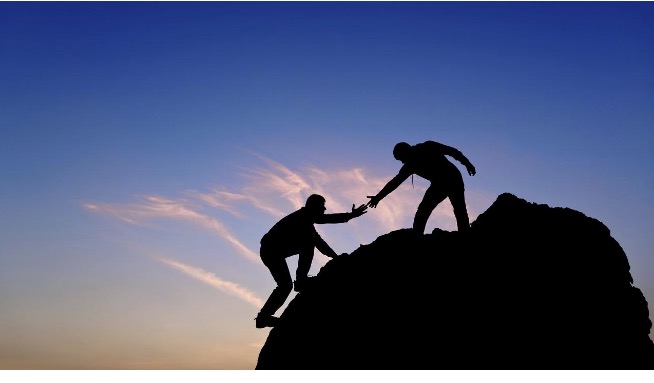Comments
ACCORDING TO LIZ - As individuals, each of us pay just a brief visit to this planet – a mere 65, 85, 100 years out of Planet Earth’s four and a half billion.
So what can we accomplish in that blink of an eye?
Today the world is crawling with eight billion people, many of whom suffer from starvation, illness and oppression.
No one person, no one group can take on all that pain and fix it. But neither can we ignore it.
The scope is overwhelming – financial and physical, political and logistical. Where to begin?
While there are always the Paul Farmers, Martin Luther Kings, Mahatma Gandhis, Mother Teresas and other heroes to inspire us, there is still a huge need for many hands to help in the betterment of humanity.
Each of us must assess what they can and cannot contribute and then do it. What we do, whether it is donating money or our time, teaching others, writing about issues to inspire people to act, calling on our elected officials to take stands that make a difference, are all important and there is every reason that they can and should evolve over time.
But, above all, we must care for ourselves first so we can then care for others; we must love ourselves so we can love others just as much.
If you look at Maslow’s hierarchy of human needs, part of that entails getting the basics – healthy food, clean water, safe shelter – to those in need whether they live in refugee camps in Sudan or Syria, or on the streets of Los Angeles.
People will then need education and fulfilling employment before they can let go of the strongest elements of their pain and anger, and start to transition to building family and friendship, connections that take them beyond their immediate personal needs so that they, too, can help others.
This grants them the opportunity to use their new freedom and respect for what they have already accomplished to build strength and recognition and so achieve a point of self-actualization where they can then focus on being all that they can be.
Although all this can be accomplished within the framework of the sacred, this is more of an opportunity to divest from religion as the opiate of the masses, as a crutch to excuse or deflect the pain that does not have to be the lot of mankind.
We are not on this earth to suffer but to enjoy. So long as we respect others, and don’t impinge on their enjoyment.
One element of most faiths is that life is transitory. Some religions have used this to justify people’s suffering in the present, promising them pleasure in the world to come.
But isn’t it better to work on making today happy for all, not only for family and friends but for everyone else? While there may be an element of duty in improving the life of someone who you know and love, isn’t there greater pleasure in doing good, doing something useful with our lives with no expectations of return?
If you love yourself, you will have more love for others. Love is like creativity, the more you use it, the better it gets, and the more you have to give to others. It’s a muscle you strengthen every time you use it.
What can be more wonderful than to be at peace with yourself and help others share in such; to contribute to others’ happiness is, to me, the true meaning of life.
Altruism at its purest, reveling in the pleasure of people around me and far away, not playing the martyr or guilt-tripping; true humanity born of a generous spirit. Something I aspire to in order to love unconditionally.
The lyrics to a Gordon Lightfoot song keep echoing in my life:
My love was given freely
And oftimes was returned
I never came to borrow
I only came to learn
Sometimes it would get lonely
But it taught me how to cry
And laughter came too easy
For life to pass me by
Offer thanks freely, love unconditionally and with care. Spread the wealth and pay it forward with a smile. Understand that love and compassion are necessities in all our lives, not luxuries.
Knowledge is important but far more important is the use to which it is put. So pay attention to what is needed in the here and now, what is right for life and the world around you.
Ralph Waldo Emerson wrote about nature and the stars as “the perpetual presence of the sublime,” and I will end this discourse with another quote of his: “Crossing a bare common, in snow puddles, at twilight, under a clouded sky, without having in my thoughts any occurrence of special good fortune, I have enjoyed a perfect exhilaration. I am glad to the brink of fear.”
(Liz Amsden is a contributor to CityWatch and an activist from Northeast Los Angeles with opinions on much of what goes on in our lives. She has written extensively on the City's budget and services as well as her many other interests and passions. In her real life she works on budgets for film and television where fiction can rarely be as strange as the truth of living in today's world.)





